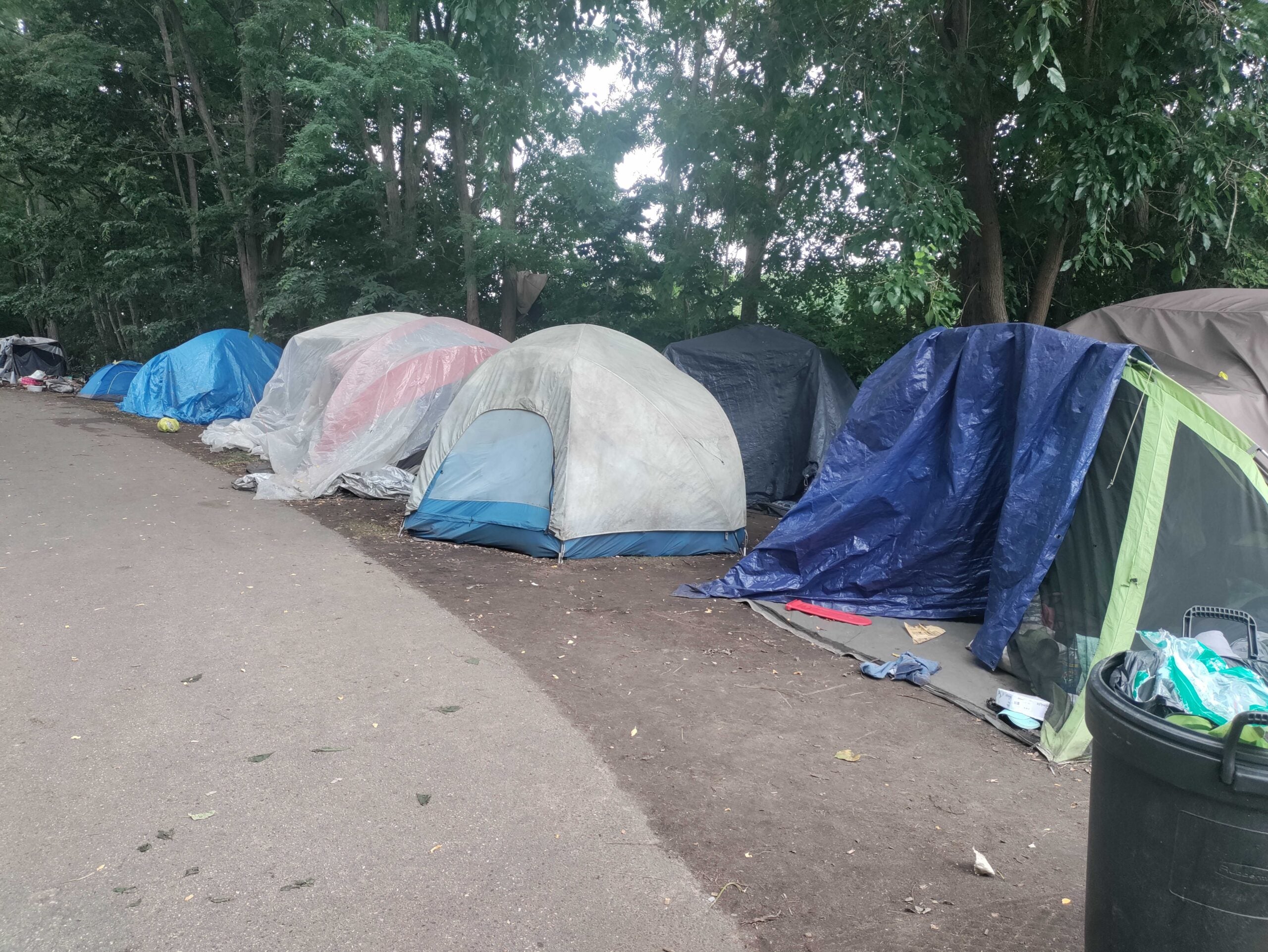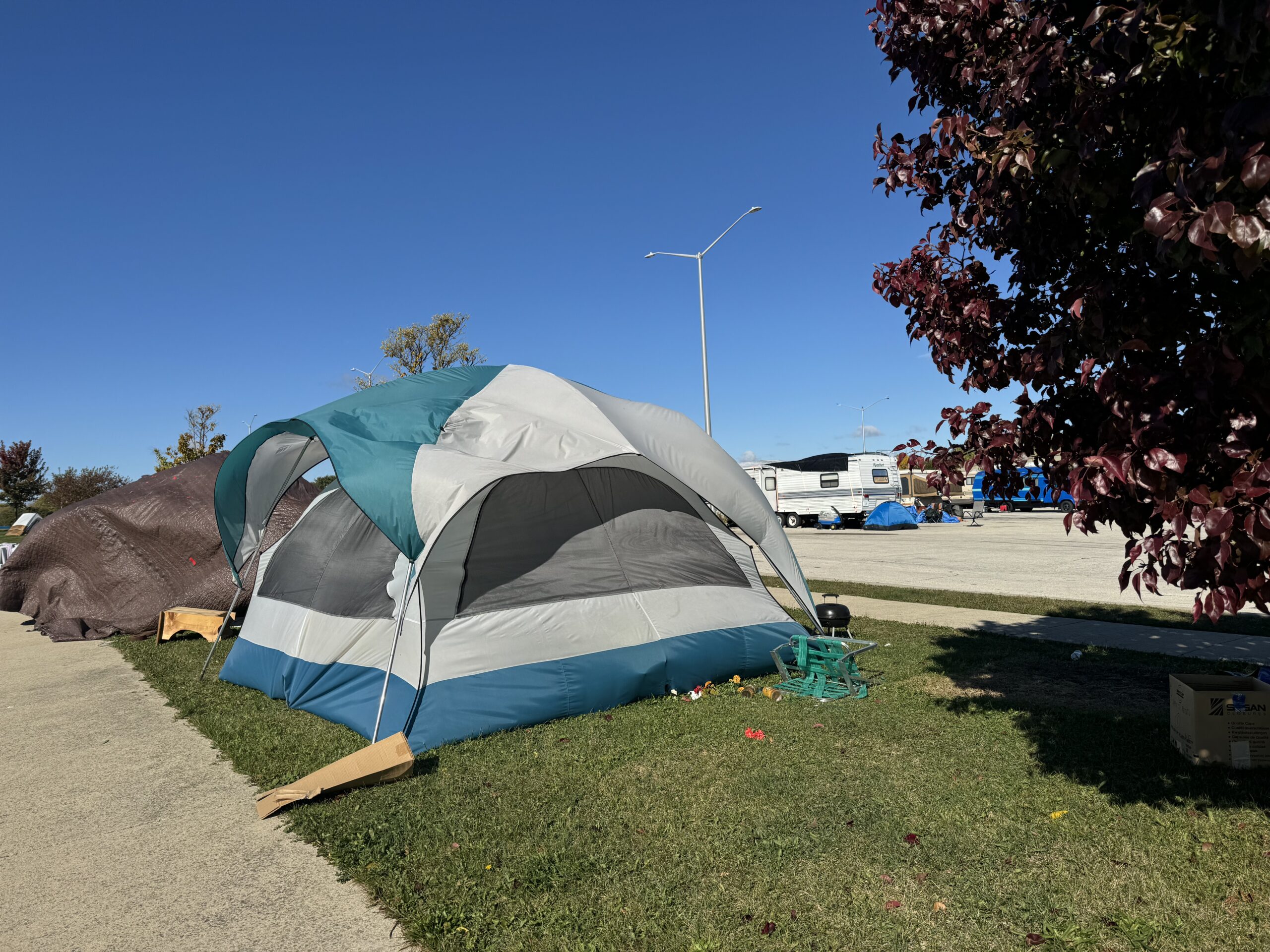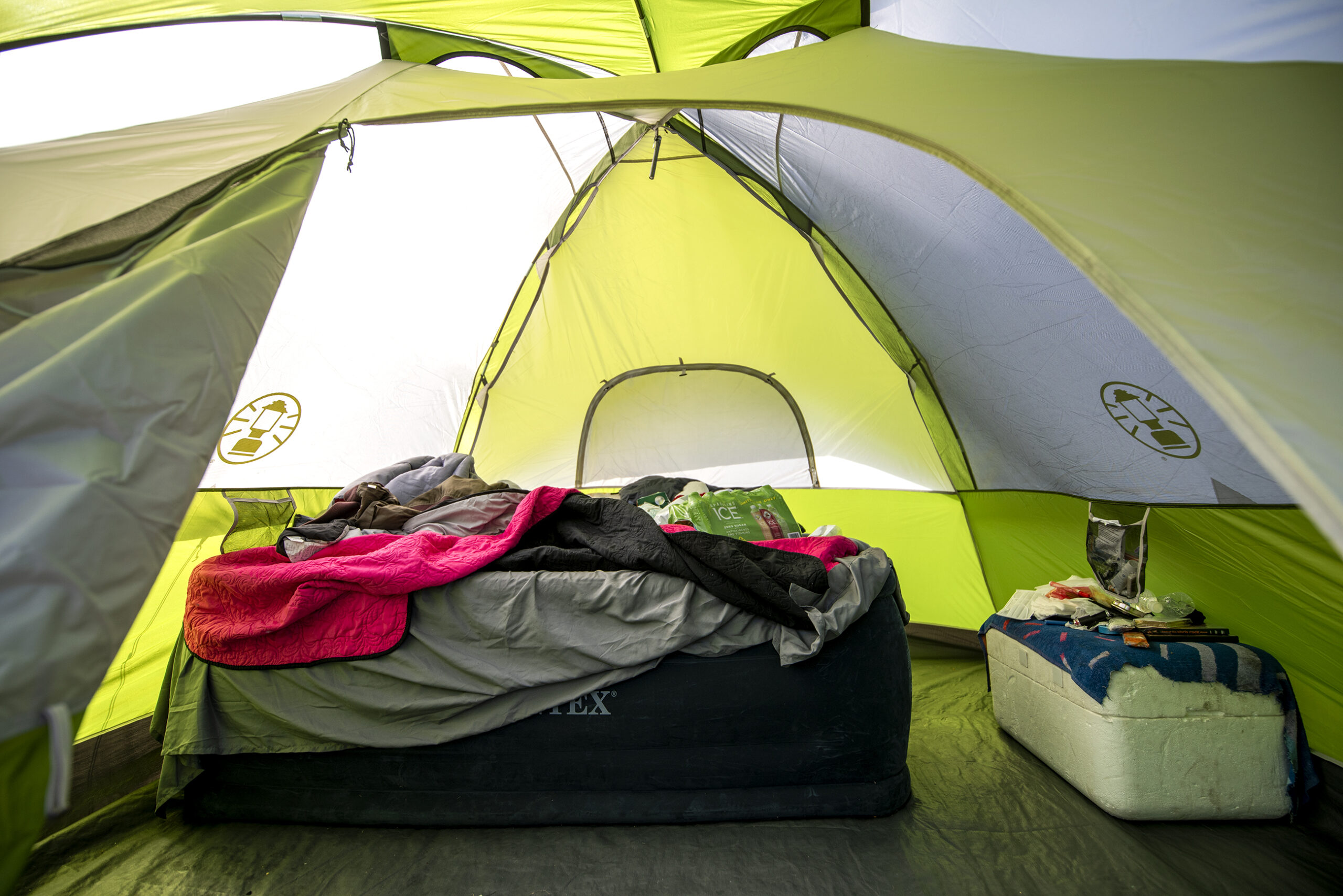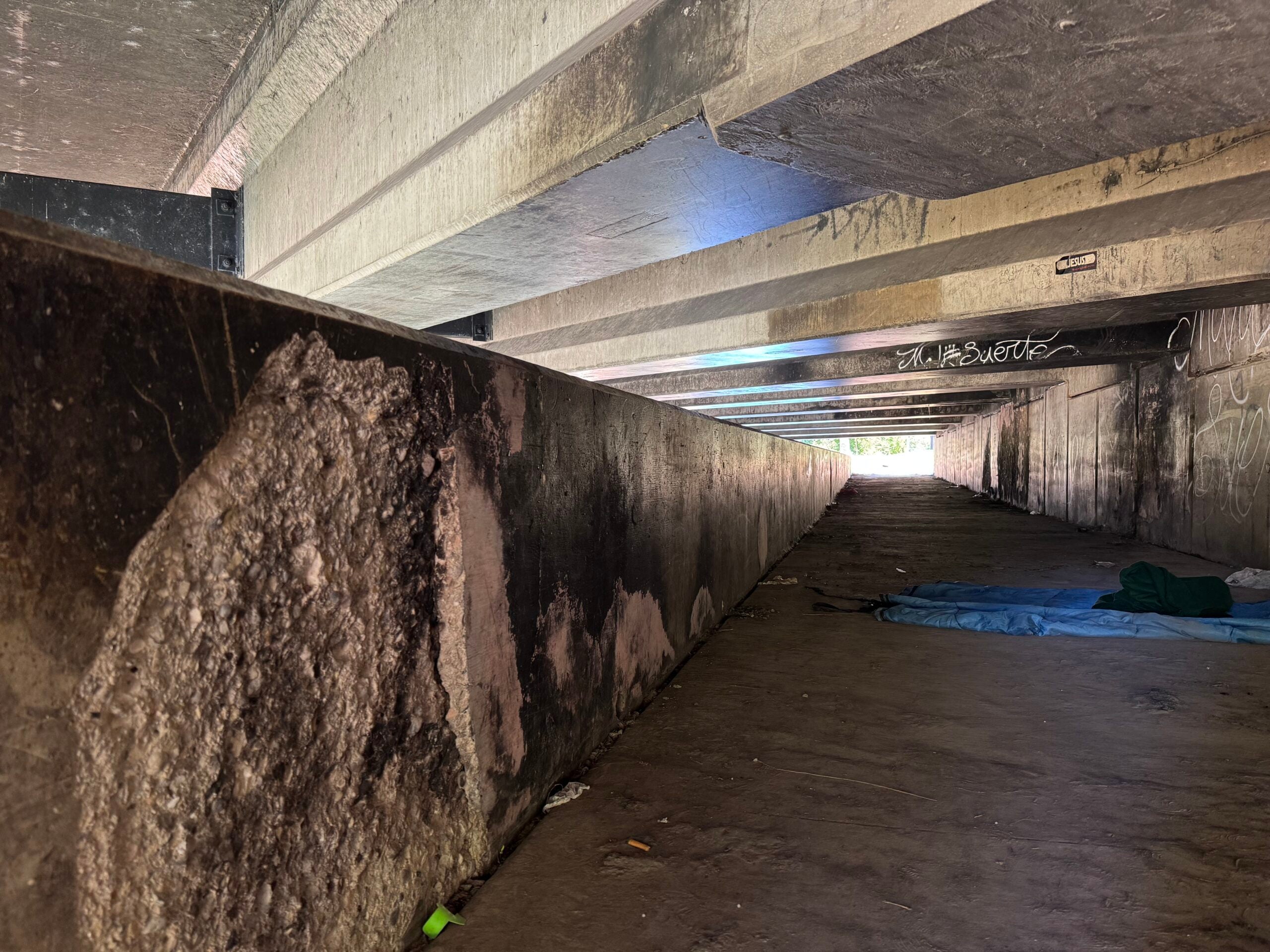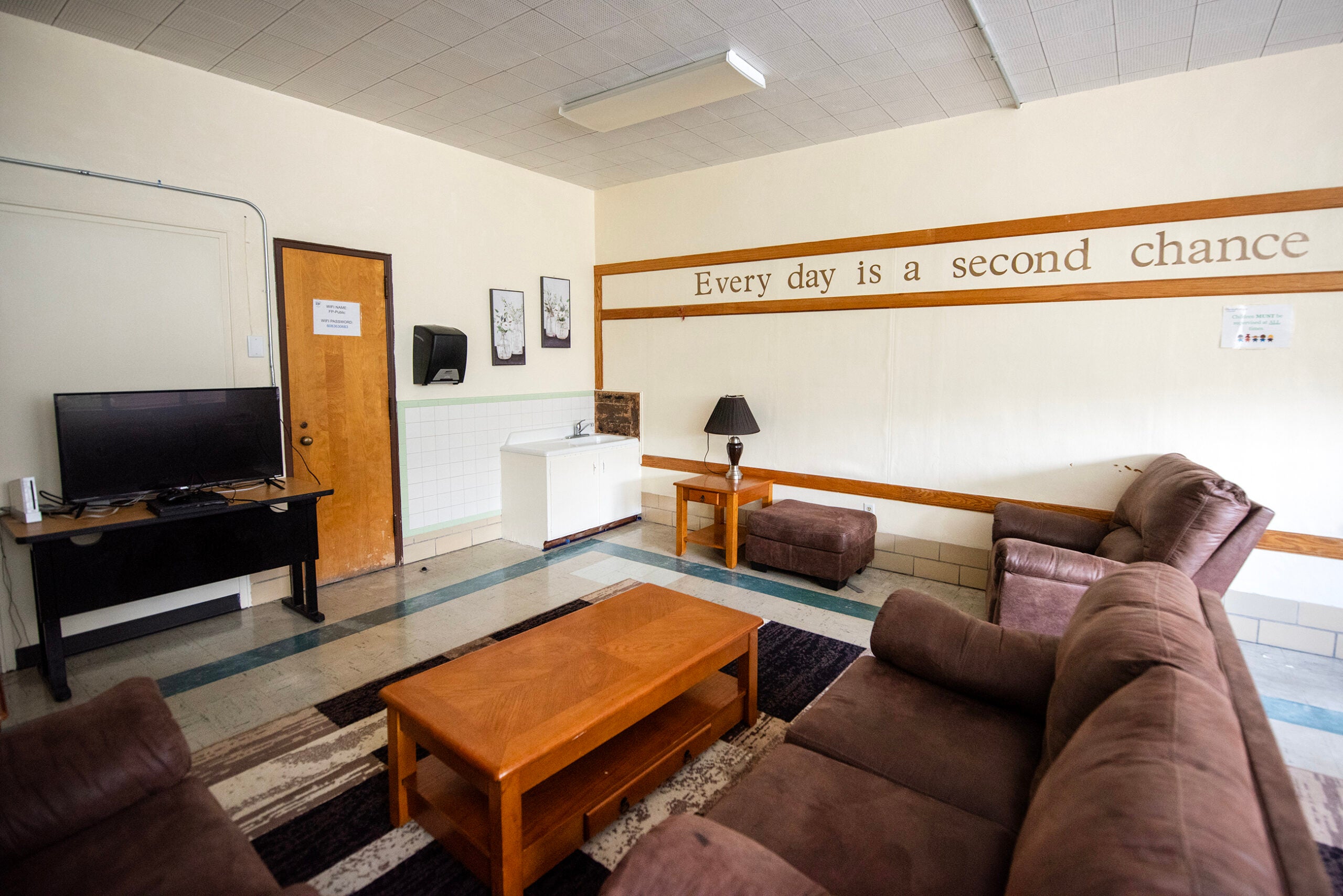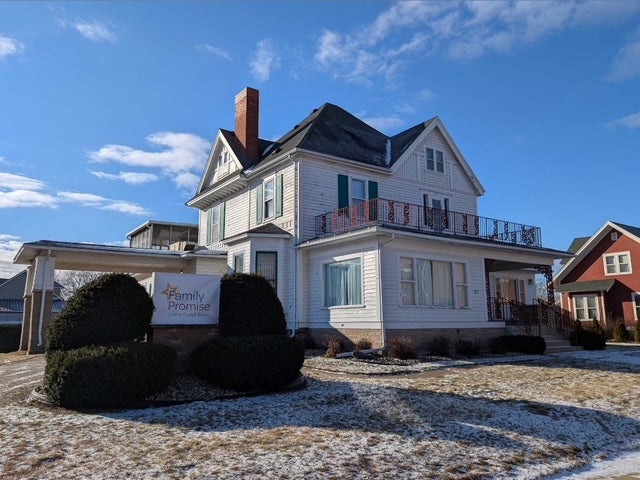Unsheltered residents who have been camping along marsh trails and elsewhere within city limits are working to find new places to camp. That’s ahead of an Aug. 28 deadline when the City of La Crosse said it will begin enforcing a new no-camping ordinance on city property.
The new ordinance passed the La Crosse Common Council on a 7-5 vote earlier this month. Jennifer Trost is one of the council members who voted against the camping ban.
She talked with WPR’s Ezra Wall on “Morning Edition.”
News with a little more humanity
WPR’s “Wisconsin Today” newsletter keeps you connected to the state you love without feeling overwhelmed. No paywall. No agenda. No corporate filter.
The following transcription has been edited for brevity and clarity.
Ezra Wall: What are the main problems you see with implementing a camping ban across all city property?
Jennifer Trost: This has been an issue that my colleagues who joined the council with me in 2021 have been dealing with for several years and I don’t think that a camping ban is really a solution for the unsheltered population.
We don’t know where they would go, and it’s not a good policy solution, even short term. We’ve had a lot of public pushback from every location that unsheltered folks have set up encampments, and there’s a lot of discussion about the problems with settled encampments, and nobody wants that. No one on the council wants that. No one on the council wants folks to be living outside.
We’ve tried a number of things from sheltering at a hotel, having some unofficial locations, setting up Houska Park with some amenities. And most recently, we had a long list of possible locations where we might allow people to camp with some kind of structure and support.
And as we made our way through that list, as that list became public, it was pretty clear that there’s no solution that everybody can be satisfied with. Every single location has its own problems and so I voted against the camping ban because I don’t see it as a solution. I see the homeless issue as a housing problem — there is a lack of enough housing.
I think that there are historic, systemic and institutional reasons for the inadequate supply of housing. And if we see this happening all across the country — and it’s accelerated just in the last few years — then it’s not unlike some other big economic or systemic problems that have affected a wide swath of the population. It clearly can’t be their fault because it’s so big and it’s happening in cities all across the country. There have to be systemic reasons, institutional reasons.
EW: So, as a Council member, how do you balance the needs of homeless individuals with the concerns of local residents and businesses?
JT: This is why the vote was 7-5, right? It was the narrowest of margins that could have passed. If the vote had been 6-6, it would have failed.
One of the things I would say is that we know that chronic homelessness is really expensive. Some of the statistics I’ve heard are $30,000 a year for the resources for somebody who is chronically or long-term homeless, in terms of public resources — if they go to the emergency room, police calls, fire calls, other sorts of resources that we don’t see upfront.
So, this is the way that homelessness costs everybody. If you think of an apartment that costs $1,000 a month, $12,000 a year is less than $30,000 a year, but we don’t have that. And so, we’re going to pay either way.
This is what I’ve come to understand. We can either pay in a controlled fashion $1,000 a month for rent to keep someone in some sort of housing, compared to the uncontrolled amount of money that we spend cleaning up encampments, doing these sort of emergency calls and things like that.
EW: Everyone seem to appreciate that people all need to be sheltered somewhere but disagree on exactly how to accomplish that. How do you get that paid for if the City of La Crosse can’t afford it?
JT: This is an issue that municipal governments can’t solve. We don’t have the money. We don’t have the staff, we do not have a housing department. But I will maintain that city governments, certainly La Crosse, have a commitment to reducing the barriers to housing. We have a replacement housing program which has been replacing one or two houses a year for many years — a couple of decades.
We spend our community development block grant money we get from the federal government — about $1 million every year, and we use a fair amount of that for housing. We currently have a down payment assistance program that we’re offering to eligible households.
EW: What is the next step that gets La Crosse moving in what you would see as the right direction?
JT: We need to do the things that the city government can do, which is remove barriers to housing development.
We can make the permitting process more smooth, we can make it shorter, more predictable. We can remove the zoning and land use barriers that have locked builders into several decades of a certain kind of housing.
We have a real opportunity right now, and we have a housing study that has just come out that says we need between 200 and 230 new houses per year.
We need to engage in this upcoming project to revise our zoning code to make it easier to build smaller houses and to make our zoning codes work for the city of the future, work for what we need right now.
And so to me, changing our zoning code is not going to happen right away that it’s going to yield improvements or larger quantities of houses. But I think we need to be addressing this at the institutional level to make it easier to build the houses we know we need for now.
If there’s something in Southwestern Wisconsin you think we should talk about on “Morning Edition,” send it to us at southwest@wpr.org.

